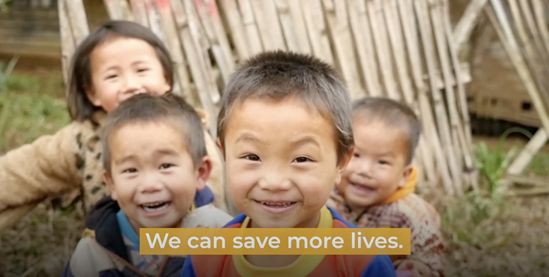Sarah Wambui Chege and Beatrice Oyuga go over patient files in the labour ward of Mama Lucy Kibaki Hospital, Nairobi, Kenya.
Nursing and midwifery
Nursing encompasses autonomous and collaborative care of individuals of all ages, families, groups and communities, sick or well and in all settings. It includes the promotion of health, the prevention of illness, and the care of ill, disabled and dying people. Nurses play a critical role in health care and are often the unsung heroes in health care facilities and emergency response. They are often the first to detect health emergencies and work on the front lines of disease prevention and the delivery of primary health care, including promotion, prevention, treatment and rehabilitation.
In many countries, nurses make up half of all health care professionals and have a vital role in how health actions are organized and applied, both at the front-line and managerial levels. They are often the first and sometimes only health professional a patient will see and the quality of their initial assessment and subsequent care is vital to strong health outcomes.
Despite the critical role they play in health care, there is a shortage of nurses worldwide that is expected to rise as the population grows. Initiatives to expand health care services, particularly in low- and middle-income countries, are succeeding in providing access to previously underserved communities, which furthers the need for trained nurses. Every country needs a competent, motivated, well-distributed and supported health workforce as part of the global drive for universal health coverage, and nurses are central to these efforts.
Nurses and midwives account for nearly 50% of the global health workforce. However, they also represent 50% of the global shortage of health workers, which is estimated at 4 million. Since in most countries nurses and midwives form the bulk of the clinical health workforce, developing and strengthening human resources for health means recognizing that nursing and midwifery services play a vital role in improving health service delivery. Nursing also represents a significant share of the female workforce; globally, 70% of health and social workers are women. Achieving the goal of health care for all will require huge efforts to reduce the shortage of health workers around the world.
WHO recognizes the vital role that nurses play in primary
health care delivery worldwide – including research, disease prevention,
treating the injured, palliative care and more – which is represented through
several World Health Assembly resolutions. These documents demonstrate the
importance WHO Member States attach to nursing and midwifery services as a
means of achieving better health for all communities.
Nursing and Midwifery at WHO is led by the Chief Nursing Officer (CNO), Dr Amelia Latu Afuhaamango Tuipulotu, from the Kingdom of Tonga. She was appointed to the role in December 2022, taking over from Elizabeth Iro, the first Chief Nursing Officer at WHO, who held the position from 2017-2022. A key role of the Office is to provide leadership to nurses and midwives worldwide.
Through the Department of Human Resources for Health (HRH), WHO works on many fronts to promote the role of nurses in health care delivery and expand the global health work force. The Department aims to facilitate the integration of nursing and midwifery services into other WHO programmes and provide evidence-based information on the global health workforce to assist countries and partners in collaborate efforts. WHO also supports technical efforts for capacity building at both the policy level and through in-country programmes, and works to forge networks and effective partnerships to help meet the global need for health care workers.













